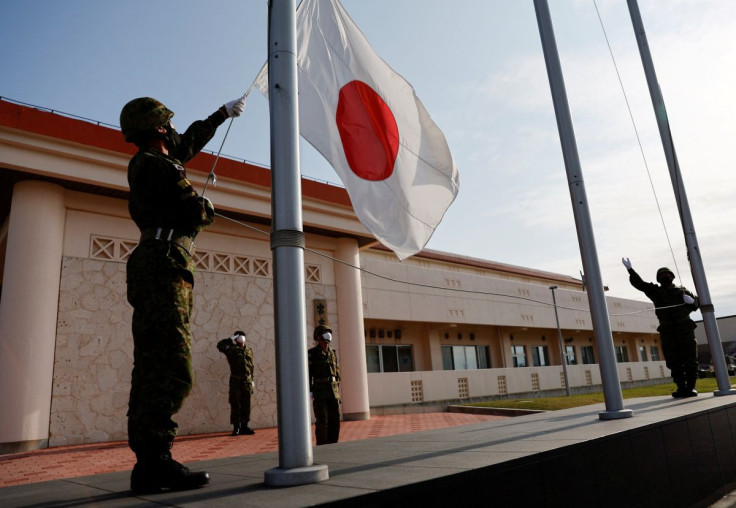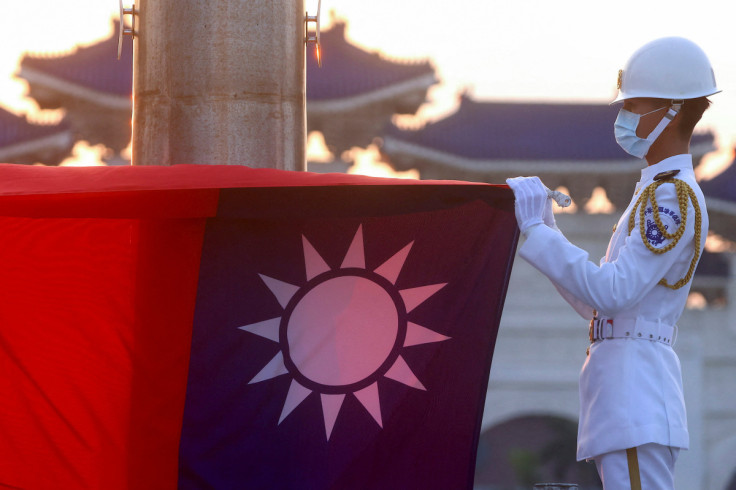80% Of Japanese Fear Japan Will Be Dragged Into US-China War Over Taiwan

KEY POINTS
- A survey said 28% of Japanese are "greatly" concerned and 52% are concerned "to some degree" about a U.S.-China conflict
- More than half of Japanese prefer that their military limit its role to rearguard support to the U.S. military
- Most Japanese want the government to deepen its relationship with China
Most Japanese are afraid that their country would be dragged into an armed conflict between two of the world's superpowers, according to a survey.
According to a nationwide survey conducted by the Japanese news outlet Asahi Shimbun on Feb. 28, about 80% of respondents were concerned about the possibility that Japan would be caught up in a conflict between China and the U.S. over self-ruled Taiwan.
Twenty-eight percent said they are "greatly" concerned, while 52% said they are concerned "to some degree," the survey showed.
In the southwestern Japan region of Kyushu, which includes Okinawa prefecture, home to the largest U.S. military installation in the Asia-Pacific, about 35% of the respondents said they are "greatly" concerned that their country would be involved in a potential conflict. This was the largest percentage by region, according to the outlet.
When asked about their preferred response of Japan's Self-Defense Forces (SDF) to a possible U.S.-China military confrontation, 56% of the respondents said the SDF should limit its role to rearguard support to the U.S. forces.
Twenty-seven percent said they do not want the SDF to work with the U.S. military in the event of an attempted Chinese invasion of Taiwan.
Only 11% of the respondents said they support the possibility of the SDF using force with the U.S. military against China.
Meanwhile, 70% said they believe Japan should prioritize "deepening the relationship with China," while only 26% said they want their country to strengthen its defense capabilities.
Japan's stance on the cross-strait tensions between China and Taiwan remains ambiguous, though the country has recognized the one-China policy since 1975.
However, the growing Chinese aggression in the region pushes Japanese officials to revisit the country's foreign and military policies.
This week, a delegation of Japanese lawmakers from the ruling Liberal Democratic Party (LDP) is set to visit Taiwan.
The Japanese delegation is scheduled to meet Taiwanese President Tsai Ing-wen and other senior government officials, Focus Taiwan reported.
Fan Chen-kuo, the deputy head of the Ministry of Foreign Affairs' Taiwan-Japan Relations Association, said that as many as 18 Japanese lawmakers would visit the island this week as the Japanese parliament is on vacation due to the annual "Golden Week" break.
Last month, Japan's Chief Cabinet Secretary Hirokazu Matsuno underscored the importance of maintaining peace and stability in the Taiwan Strait.
"The importance of peace and stability in the Taiwan Strait is not only important for the security of Japan, but also for the stability of the international community as a whole," he said, Reuters reported.
The statement of the Japanese official coincided with the maritime talks between senior Japanese and Chinese officials, the first since 2019.
The Chinese Foreign Ministry said Chinese officials at the maritime meeting criticized Japan's "negative moves" on the Taiwan Strait and the East and South China Seas.
The Chinese government also urged Tokyo to refrain from meddling in the issue of Taiwan.

© Copyright IBTimes 2025. All rights reserved.






















